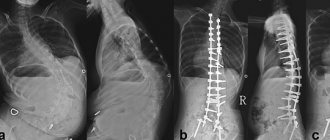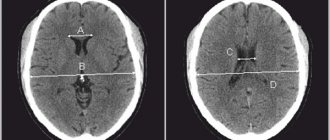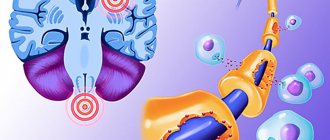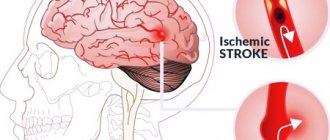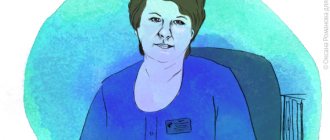With age, all natural processes in the body gradually fade away, and the work of the brain, unfortunately, is no exception. Relatives may notice that an elderly relative is gradually losing basic everyday skills, suffers from forgetfulness, and commits illogical actions - these are signs of developing dementia, an irreversible process that crosses out all neural connections. Living next to a person with dementia is a heavy burden: the family can only come to terms with the incurable disease and try to provide the patient with the most comfortable living conditions.
When an elderly relative ceases to be adequate...
If a loved one has senile dementia, what should relatives do, and how can they understand that this is a disease and not ordinary whims? Most often, dementia begins quite harmlessly. A person may complain to relatives and neighbors that they are not feeding him, they are watching him, they are trying to kidnap him, or they are letting some substances or gases into his room or apartment. This might seem funny if it weren't so sad. The disease progresses quite quickly, and over time, older people stop recognizing family members, accuse them of theft or violence, bring home garbage from the landfill, and literally fight with anyone who tries to throw it away. Some people think that dementia will not affect those who have been engaged in active mental activity all their lives. The disease does not choose, and even a doctor of science or an honored leader can be found in a garbage dump, enthusiastically digging through waste.
There is no need to think that the patient is doing this on purpose, just to mock and laugh at his loved ones. This disease destroys the brain, and the patient is not even aware of his actions. The person loses the ability to absorb or process information. He becomes very sensitive to criticism: any remark or attempt to explain something leads to protest and a new attack. How to deal with a person with dementia? Relatives will have to show maximum patience and attention, not contradict, or explain something gently and unpersistently. If the patient feels aggression, he will begin to perceive his family as enemies, and it will be very difficult to establish contact with him.
Treatment and recovery after psychosis at the Mental Health Clinic
The treatment of psychosis at the Mental Health clinic is carried out not only by psychiatrists, but also by psychotherapists, psychologists, and social educators. This allows you to restore a person’s condition in the shortest possible time. In our clinic, when treating psychosis, we use an integrated approach, which consists of a combination of medicinal and non-medicinal methods. In addition to the above, we also use the latest, safe methods of instrumental therapy: biofeedback (BF), transcranial magnetic stimulation (TMS), light therapy.
Biofeedback
Biofeedback allows the patient to observe the strength of his own reaction to various stimuli and, with the help of special exercises, develop new, more effective response skills.
Light therapy
It has a beneficial effect on the body's circadian rhythms (sleeping and waking patterns), which helps restore the body of a person who has experienced a psychotic episode.
Transcranial magnetic stimulation
Allows you to track the state in which the motor zone of the cerebral cortex is located. Also, TMS, due to a magnetic pulse, has a depressing or stimulating effect on the cortex, depending on the state in which the patient is, providing a therapeutic effect.
This combination of various methods of influencing the disease significantly reduces treatment time and leads to effective results. In our practice, we use only proven, reliable, well-tested methods of diagnosis and therapy. Additionally, I would like to note that the provision of timely assistance is the key to a successful prognosis in the treatment of psychosis.
Still have questions? We know how to help you! Call us
Arrangement of living space
It is necessary to think as much as possible about how to arrange the patient’s home so that it is comfortable and, most importantly, safe. It is important to try to remove electrical and gas appliances, matches, and lighters from the access area. When leaving home, it is recommended to turn off the gas valve, as people with dementia have a habit of lighting the stove and leaving it, simply forgetting about it. You shouldn’t even try to ask why they are doing this - patients will deny everything, there will be deep resentment, tears, and possible hysterics.
At the initial stage of the disease, a person simply becomes forgetful, inattentive, and clumsy. As the disease progresses, he can no longer live alone: someone close to him will have to experience for himself how to live with a person who has dementia. Piercing and cutting objects pose a danger to the patient. It is better to even choose dishes made of plastic, rather than from materials that can break into fragments. Knives, forks, scissors, household chemicals and medicines - all this needs to be removed from reach. Furniture should be arranged so that the patient does not risk getting hurt on sharp corners; it is advisable to provide room for movement. There should be anti-slip mats in the bathroom and toilet.
Diet and daily routine
One of the most important aspects of caring for an elderly person suffering from dementia is organizing a clear and established daily routine. The patient should not be allowed to sleep too long in the morning. An alarm clock will help you get up at the same time. The specific time of waking up also determines what time the patient goes to bed in the evening. If he wakes up at 6-7 am, he will need to go to bed no later than 10 pm. The night will pass peacefully, and relatives will have the opportunity to sleep. You also need to go for a walk at the same time.
Despite the unstable mental state, the patient does not need to be isolated from society. Communication with others, especially at an early stage, will help delay and slightly delay the development of the disease. If possible, you can ensure that you attend hobby groups or clubs. Mental stress can prevent the rapid death of cells.
Caring for a person with dementia at home involves changing their diet. You will have to exclude fried, spicy, smoked foods from your diet, focusing on boiled or steamed foods. Fruits, nuts, fish and seafood are excellent natural antioxidants; they are extremely useful for all brain diseases and nervous disorders.
Aggression in dementia
Experts often say that people with dementia live in their own universe. They have their own rules and laws. Often a calm, balanced person throughout his life becomes embittered and aggressive under the influence of the disease. It is strictly forbidden to leave small children in the same room with elderly people suffering from dementia. They are not aware of their actions and can harm a child who is unable to defend himself.
The most surprising thing is that aggression can appear suddenly; at any moment, loved ones must be prepared for an outbreak. Patients make scandals, rush into fights, throw objects, break dishes, may bite, pinch or grab
the hair of the person nearby. It is very difficult for loved ones to maintain emotional contact with such patients. All attachments and feelings for a loved one are erased under the influence of constant inappropriate behavior. What to do with aggression in senile dementia, and how to explain to neighbors that no one is bullying an elderly relative?
First of all, you need to remember that aggression can be a signal of some kind of discomfort that the patient is experiencing. These could be problems with physical well-being, psychological trauma, or everyday inconveniences. A man screams and fights to get attention. Anger often manifests itself while taking medications. In this case, you need to consult your doctor and discuss the possibility of replacing the drug with an analogue.
As for neighbors, there is no need to hide the diagnosis of a loved one from them. During walks or short visits, they themselves will be able to assess the patient’s condition and understand that relatives are not mocking him, but are themselves victims of his inadequate condition.
Basic rules of behavior when a patient has an outburst of anger:
- Don't show fear;
- Take a step back (move away as much as possible, but so as to see the patient);
- Listen and try to calmly console;
- Transfer his attention to another issue;
- Do not respond with anger and do not punish the patient.
There is no need to keep negativity to yourself. If there is someone who is able to listen and give advice, it is better to call such a person and talk it out. Internal tension that does not find relief will lead to problems of a psychosomatic nature.
Treatments for delirium
Patients should be distracted, shielded, and, if possible, removed from painful stimuli. The underlying disease causing delirium should be treated. Recommended pharmacological agents for the management of agitation and psychosis are given in Table 6.4,14-16 Caution is recommended when using benzodiazepine drugs due to their potential to cause agitation. Antipsychotics and antipsychotics may cause QT prolongation, extrapyramidal side effects, and akathisia. In general, it is best to start with low doses of drugs and titrate carefully to clinical effect. Once an effective treatment has been found, it is appropriate to schedule the administration of drugs some time before the patient's periods of peak agitation (for example, before medical procedures and before bedtime).
| TABLE 6 Means for relieving agitation and psychosis |
|
Use physical or pharmacological restraint only when all other methods of arousal have been exhausted and the patient's actions clearly could cause significant harm to his health or pose a threat to life (for example, attempting to remove an endotracheal tube or central venous catheter). The use of physical restraint is associated with worsening delirium, injuries from falls, and physical weakness. Most patients with delirium can safely stay in a special “delirium room” (analogous to an observation room for one or two patients with a minimum amount of stimuli and the availability of equipment for monitoring the state of the main body systems and infusion therapy - approx. trans.).17 Pharmacological treatment of hypoactive delirium has not been studied in detail. For opioid-induced delirium in hospice care, methylphenidate may be helpful in its management.18
This article previously appeared in the journal Applied Neurology.
Bibliography:
1. Ely EW, Shintani A, Truman B, et al. Delirium as a predictor of mortality in mechanically ventilated patients in the intensive care unit. JAMA. 2004;291:1753-1762. 2. Olofsson B, Lundström M, Borssen B, et al. Delirium is associated with poor rehabilitation outcome in elderly patients treated for femoral neck fractures. Scand J Caring Sci. 2005;19:119-127. 3. McCusker J, Cole M, Dendukuri N, et al. The course of delirium in older medical inpatients: a prospective study. J Gen Intern Med. 2003;18:696-704. 4. Marcantonio ER, Simon SE, Bergmann MA, et al. Delirium symptoms in post-acute care: prevalent, persistent, and associated with poor functional recovery. J Am Geriatr Soc. 2003;51:4-9. 5. Marcantonio ER, Goldman L, Orav EJ, et al. The association of intraoperative factors with the development of postoperative delirium. Am J Med. 1998;105:380-384. 6. Inouye SK, Charpentier PA. Precipitating factors for delirium in hospitalized elderly persons. Predictive model and interrelationship with baseline vulnerability. JAMA. 1996;275:852-857. 7. Inouye SK, Viscoli CM, Horwitz RI, et al. A predictive model for delirium in hospitalized elderly medical patients based on admission characteristics. Ann Intern Med. 1993;119:474-481. 8. Inouye S.K. Prevention of delirium in hospitalized older patients: risk factors and targeted intervention strategies. Ann Intern Med. 2000;32:257-263. 9. Breitbart W, Tremblay A, Gibson C. An open trial of olanzapine for the treatment of delirium in hospitalized cancer patients. Psychosomatics. 2002;43:175-182. 10. American Psychiatric Association. Diagnostic and Statistical Manual of Mental Disorders, Fourth Edition. Washington, DC: American Psychiatric Press; 1994. 11. American Psychiatric Association. Diagnostic and Statistical Manual of Mental Disorders, Third Edition Revised. Washington, DC: American Psychiatric Press; 1987. 12. Lundstrom M, Edlund A, Karlsson S, et al. A multifactorial intervention program reduces the duration of delirium, length of hospitalization, and mortality in delirious patients. J Am Geriatr Soc. 2005;53:622-628. 13. Naughton BJ, Saltzman S, Ramadan F, et al. A multifactorial intervention to reduce the prevalence of delirium and shorten hospital length of stay. J Am Geriatr Soc. 2005;53:18-23. 14. Mittal D, Jimerson NA, Neely EP, et al. Risperidone in the treatment of delirium: results from a prospective open-label trial. J Clin Psychiatry. 2004;65:662-667. 15. Sasaki Y, Matsuyama T, Inoue S, et al. A prospective, open-label, flexible-dose study of quetiapine in the treatment of delirium. J Clin Psychiatry. 2003;64:1316-1321. 16. Agostini JV, Leo-Summers LS, Inouye SK. Cognitive and other adverse effects of diphenhydramine use in hospitalized older patients. Arch Intern Med. 2001; 161:2091–2097. 17. Flaherty JH, Morley JE. Delirium: a call to improve current standards of care. J Gerontol A Biol Sci Med Sci. 2004;59:341-343. 18. Gagnon B, Low G, Schreier G. Methylphenidate hydrochloride improves cognitive function in patients with advanced cancer and hypoactive delirium: a prospective clinical study. J Psychiatry Neurosci. 2005;30:100-107. — See more at: https://www.psychiatrictimes.com/delirium/troubleshooting-delirium-elderly-inpatients#sthash.xCKHKXCj.dpuf
https://www.psychiatrictimes.com/
All materials on the site are presented for informational purposes only, approved by a certified physician, Mikhail Vasiliev, diploma series 064834, in accordance with license No. LO-77-005297 dated September 17, 2012, a certified specialist in the field of psychiatry , certificate number 0177241425770.
Tendency to run away from home
Another common problem that loved ones of a person suffering from senile dementia often face is the tendency to wander and run away from home. It would seem that he has everything for a comfortable life: comfortable housing, care and attention from relatives, but the patient continues to run away, and his relatives are lost in search.
If a person has dementia, how can those around them live, and how can they cope with constant “surprises” on their part? First of all, you need to talk to your neighbors and sellers from nearby stores so that they immediately warn the relatives of an elderly person if they see him on the street alone. You need to give them phone numbers that you can call and tell them where the patient is.
The patient himself needs to put on a bracelet on his hand, which will also contain the contact information of his relatives. The ideal option is a smart watch or phone with the function of tracking the subscriber’s movement.
Caring for a bedridden patient with dementia
Senile dementia does not act selectively: it can overtake anyone, including a bedridden patient. In this case, it is even more difficult for relatives. In addition to the heavy physical exertion associated with caring for a bedridden patient, psychological problems arise. Being immobile, patients cease to control the natural processes of the body. Trips to the toilet become more frequent, and many manage to take off their diapers and smear waste products on the walls, beds, and get dirty themselves. If dementia reaches this level, home care becomes real torture for relatives. You need to be nearby around the clock and stop any attempts to remove the diaper.
Relatives are also required to carry out a number of mandatory measures: carrying out sanitary and hygienic procedures, preventing bedsores, administering medications, feeding from a spoon or through a tube (in case of impaired swallowing reflex). In this case, it is better to go to a boarding house for bedridden patients with dementia, where all the necessary care measures are performed daily and a general practitioner monitors the dynamics of the health status on a weekly basis.
How to prolong the life of a person with dementia?
Dementia is an irreversible process. According to medical studies, patients can live with this diagnosis for up to 10 years. Relatives are faced with a task: if mom, dad, grandma or grandpa has senile dementia, how can they help their loved one and try to preserve the remnants of their intellect?
In the initial stages of the disease, you need to intensively train the brain: solve crossword puzzles with the patient, solve problems from the school curriculum, watch TV quiz shows and offer your own answers. It is recommended to engage in gentle physical exercise and walk more in the fresh air. There are special simple exercises for dementia for the elderly; they are easy to perform, but they require concentration, which is very useful for such patients.
Communication with well-known people is welcome. Conversations, discussions, telephone conversations are useful. Despite the manifestations of the disease, relatives need to remember that in front of them is the same beloved and close person whom they are accustomed to knowing all their lives. All changes in character occur not by his will, but under the influence of an incurable disease. Dementia cannot be cured, but its progression can be delayed and delayed.
Symptoms of senile psychosis
- increased anxiety and depression;
- attacks of excessive suspiciousness (hypochondria);
- depressed mood, melancholy;
- the appearance of various forms of delusions, as well as hallucinations;
- lethargy or, conversely, overexcitation (agitated depression);
- attacks of confusion;
- decreased intelligence;
- increased suggestibility, stereotypical thinking.
In this case, psychosis gradually progresses and leads to a complete breakdown of the mental functions of the brain, that is, dementia.
How to preserve your own psyche?
It is very difficult for any person to get used to the fact that his loved one is developing senile dementia. Some people fall into despair: mom or dad has dementia,
what to do, how to help them? After despair comes anger, then powerlessness and apathy. You should not allow problems with your own health to arise against the background of a loved one’s illness. Caregivers often make mistakes in care, performing seemingly natural actions. Psychologists give a number of recommendations on what needs to be done and what points are strictly prohibited:
- Relatives must simply come to terms with the illness of their loved one;
- At the first symptoms of dementia, you should consult a doctor;
- You cannot prescribe treatment yourself;
- You cannot trust the care of minor family members;
- There is no need to forcibly pull the patient out of his imaginary world, you will have to learn to lie for the greater good;
- Do not try to cure a relative using unconventional methods;
- You cannot focus on caring for the sick while ignoring your own needs. If possible, you need to change with someone close to you, give yourself rest and emotional relief;
- It is recommended to use the help of specialists: professional caregivers or volunteers. Anyone who tries to cope with patient care alone very quickly burns out and becomes depressed from a hopeless situation.
The main condition is that you don’t need to expect gratitude from your sick relative. Due to the specifics of the disease, he will not appreciate all the efforts, and even on the contrary, he may accuse his family of inattention, anger and cruelty.
Types of psychoses
The causes of psychosis directly affect its classification. So, the following types of mental disorders are distinguished:
- endogenous phenomena - arise due to the influence of bipolar disorders, depressive factors, neuroendocrine phenomena on a person;
- exogenous phenomena - occur under the influence of various external factors, as well as due to the use of narcotic drugs, severe stress;
- organic phenomena - occur as a result of somatic pathologies, for example, myocardial infarction, head injuries and infectious diseases.
The division can be called conditional, since sometimes the occurrence of psychosis is influenced by several factors at once. As a result, a person faces serious mental disorders that lead to various problems.



